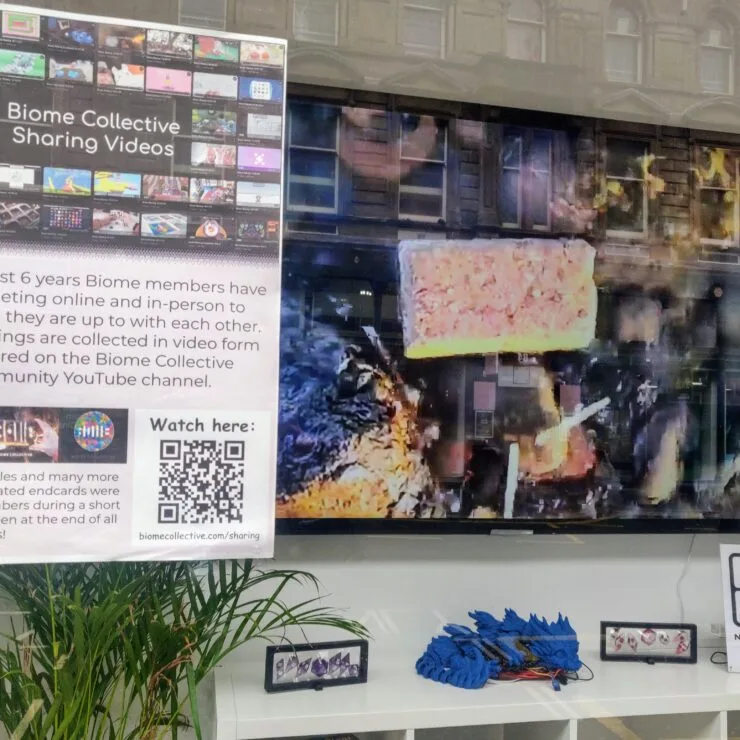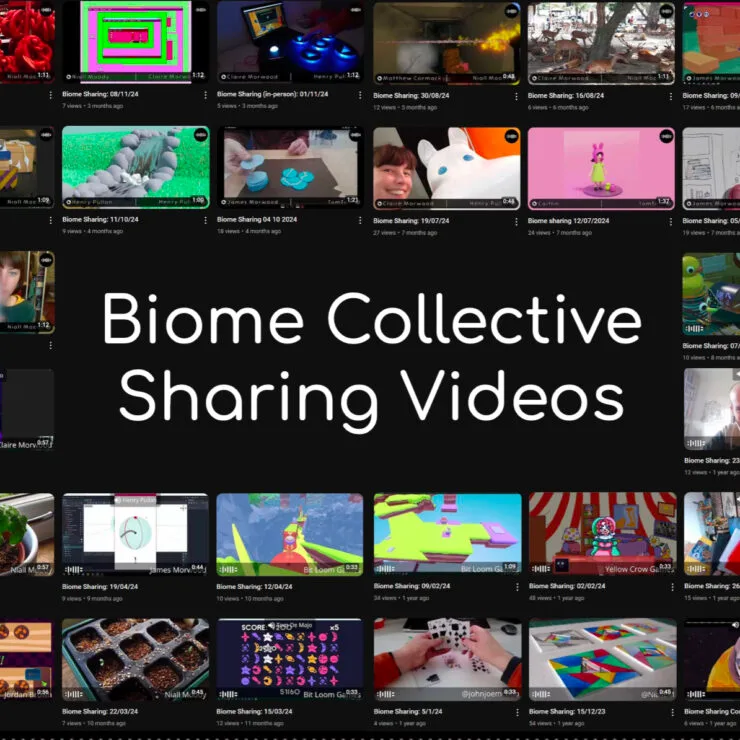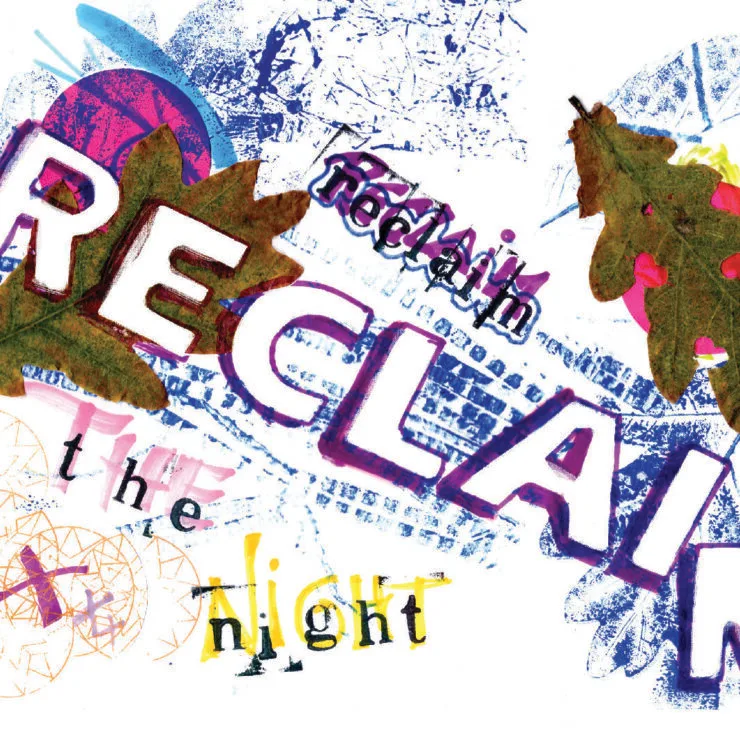This is Your Space by Nini Huang
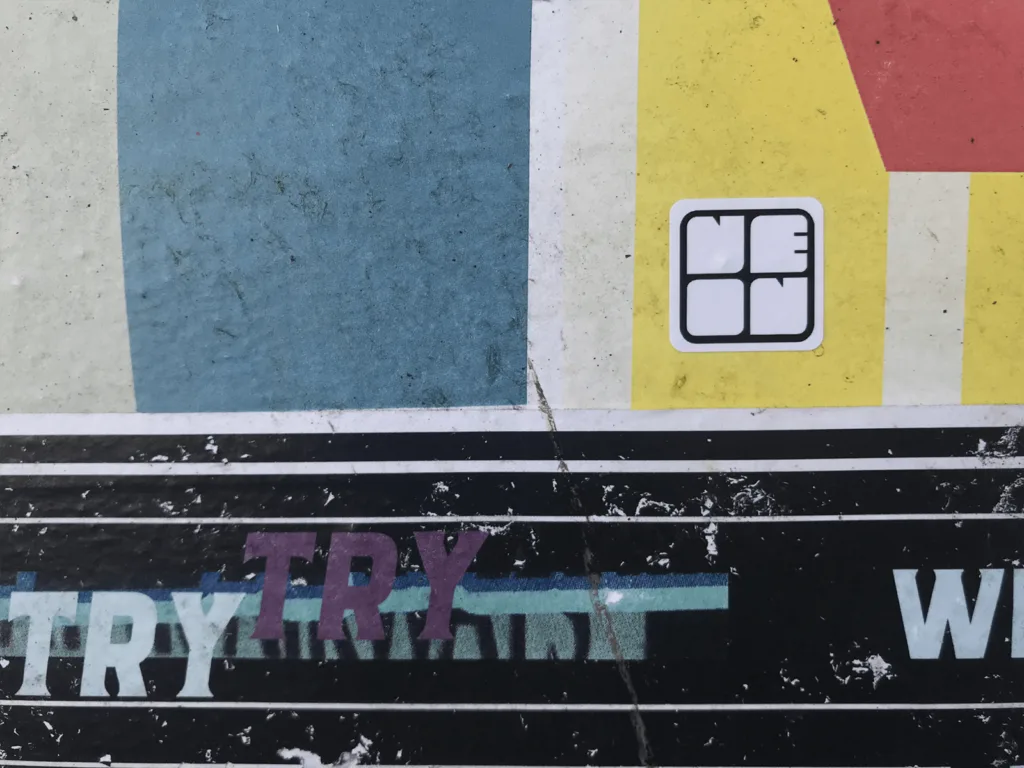
During the very strange lockdown summer of 2020, NEoN was fortunate to have two recent graduates from the University of Glasgow join us on virtual placements to put their undergraduate degrees into action within our organisation. While museums and galleries across the country closed to the public began grappling with how to “go online”, NEoN set about grappling with how to make what we already do online even more innovative. This is why it was invaluable to have Nini with us, putting her studies in art history and her keen engagement with digital art, to the test in coming up with new ideas for online programming and aiding us in being even more mindful of the diversity of the artists we work with. Nini has written two blog posts for NEoN – this long one is about her curatorial skill development, and a second post will follow about her research into the form of the performance lecture.
As a recent arts graduate, I think many might experience a similar struggle: not feeling entirely competent nor capable for a competitive job market when given limited vocational training and professional experiences in the field.
So having recently completed a curatorial internship with a reputable arts organisation as a final year undergrad, during a global pandemic lockdown no less, is nothing short from a remarkable experience. I feel incredibly grateful to have been able to work with NEoN and my amazing supervisor Prof. Sarah Cook in the past four weeks. But what made this experience exceptionally remarkable was the supportiveness, kindness and patience of the entire NEoN team who gently nudged me into working past my little insecurities in order to learn valuable new knowledge, both theoretical and practical. I would like to share some reflective thoughts from this insightful and enriching learning experience, particularly in explaining what a “curatorial internship” entails based on this experience. More importantly, I hope to somewhat demystify the idealised concept of “curating”, especially for recent arts graduates like myself who are looking to forge their own paths within the arts during these uncertain times.
I studied Art History and Digital Media prior to this internship, but my degree subjects don’t really connect to one another in the academic environment on undergraduate level. Notably, NEoN was the vital connection between art and the digital that I always wished for in order to envision my career specialisation in the field. With such an important personal development task at hands, my first week was filled with anticipation, eagerness and excitement. Starting at a new job is always scary, and the pandemic also added some inconvenience: due to social distancing rules, the internship took place entirely remotely online. Needless to say, I felt very nervous in my very first online meeting with the team. It took me a few days to adjust to this new digital reality while trying my best to get to know NEoN’s various projects, partners, vibes and my tasks at hands. The beginning is always the hardest part, but once I settled into my tasks it felt both intellectually and emotionally rewarding to do my job.
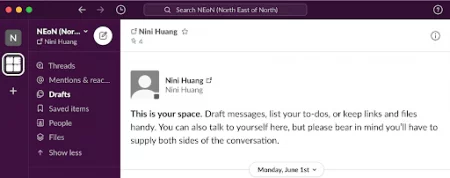
The subject of my curatorial research was Performance Lecture, including its format, structure, content and how it should be thematically connected to NEoN’s 2020 program as a whole. I was encouraged to contribute insights and ideas based on my own unique point of view. It was an unexpected yet pleasant surprise to be given an amount of autonomy to develop my own concepts. It was also a wonderful opportunity for me to learn about this particular artistic genre within the vibrant scenes of contemporary art. Coincidentally, for my dissertation I had recently researched and written about Andrea Fraser, a prominent artist who works with performative public talks in relation to Institutional Critique. At this point, I felt extremely encouraged to discover my academic work proving somewhat relevant and useful for this opportunity: not only do I get to research an interesting genre, but it connects to a topic of my interest, how lucky am I! But at the same time, I felt clueless about how my art history essay-writing skills should be used for practical curatorial research. How am I supposed to imagine myself “curating” Performance Lectures, having done nothing of the sort? I felt a frustrating disconnect between my academic skills and the ones needed to work in the actual art world in real life.
If you study Art History and aspire to become an art world professional, “curating” is possibly a dreamy job that seems extremely intriguing yet somewhat mysterious. To me, it also seems puzzling as to how anyone can ever land such a title in this brutally competitive climate within the arts, unless you already possess certain resources and connections (or so it seems). I vaguely understand the responsibilities of a “curator”, as well as the elitist undertone associated with the title, yet somehow it is now also referred to as a trendy buzzword seemingly devoid of substance. A mixture of scepticism and fascination has always governed my understanding of curating and the curator in lieu of any real-life knowledge about the job (unless you count in organising the occasional do-it-yourself style student exhibitions). I never dreamt of learning anything useful about curating unless I complete an expensive Master’s degree or volunteer several years for local art initiatives. NEoN changed that reality by providing me with this unique opportunity for learning.
My supervisor never set any rigid rules or tasks for me, instead, I was in charge of setting my own goals throughout this internship. In the process of conducting research on theories, artists and organisations who deal with Performance Lecture, I had to actively connect the dots between these different art world components with NEoN’s primary concern – the digital. While I was able to use research skills from my academic training, it was still a refreshing challenge to conduct research in a more eclectic way. I was not only collecting and reorganizing existing knowledge in writing, but also using the knowledge to inform my thought processes in developing intriguing yet feasible ideas. I also needed to take into account NEoN’s audience engagement outlook and contemporary issues in current climates to ensure that the concepts stay thought-provoking and relevant. As I looked for ways to use my previous knowledge to make sense of new information, I began to see the bigger picture of what curation entails.
Curating is about the combined understanding of the past and present to inform the future by connecting various artistic and cultural activities, ideas, thought-processes, knowledge, movements etc to each other. Curatorial research seems to be the process of chemical reaction between pre-existing historical knowledge and newly procured contemporary knowledge. This wee moment of epiphany was magical, and I knew it was something books and theories could have never taught me to understand. It was the kind of knowledge that can only be fully grasped through practical work in conducting curatorial research for real-life projects. It was also aided by the relatively self-governed, self-paced nature of this learning experience, which forced me to be more self-reflective. Once again, I feel incredibly thankful for this internship as I was able to learn by and through myself, which gave me the confidence I need to continue learning in the future.
Another valuable insight I gained, other than curatorial research considerations, is the ways in which knowledge could be shared and gained within arts communities. Theoretical knowledge is crucial, but communicating and connecting with others is equally important in the process of knowledge acquisition. Prior to this internship, research mainly meant reading tons of books and articles to me; discussions with peers and professors only seemed secondary to the learning process. I never really learned how to approach knowledgeable people in academia; perhaps it’s the enclosing atmosphere that made such endeavours seem rather daunting in case of dismissal, or perhaps I just needed some extra nudges. With the NEoN team, I find myself being encouraged to expand the limits of my knowledge and capabilities by connecting with others. Engaging in conversations and establishing relations became an indispensable component to the process of my curatorial research and a rewarding learning experience. It taught me to put aside timidness and make use of the incredible platforms I was given outside the comfort of academia.
As extraordinary as it is to work in the context of a global pandemic, I realised that the arts and culture sector is particularly sensitive to social, economic and political fluctuation. It might get hit the hardest by financial hardships, but it is also perhaps the most alerted and responsive to changes in current climates. Navigating through these complexities is difficult yet essential in pursuing a career in this fulfilling yet volatile field. This internship taught me the qualities needed to pursue any aspirations within the arts: agility, openness, self-reflectiveness and a bit of courage. Thank you, NEoN!
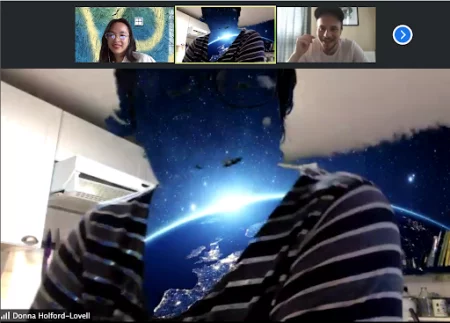
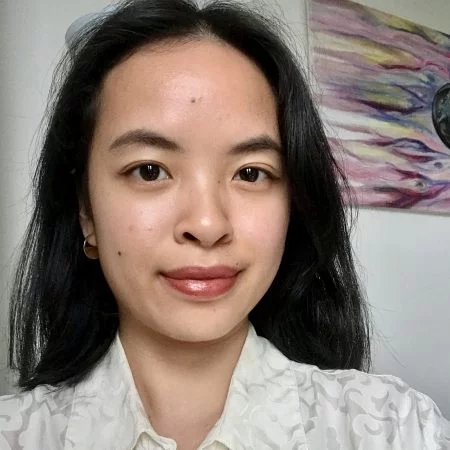 About Nini:
About Nini:
Recent University of Glasgow graduate of History of Art and Digital Media and Information Studies (MA). My ambition is to encourage constructive socio-political dialogues by building interdisciplinary, multicultural bridges through art and culture, especially with the use of digital media and technology. I am particularly interested in how the administrative and operative functions of art institutions shape art and cultural discourses, specifically in relation to the increasingly indispensable role of the digital in current climates. (Otherwise, I am a huge foodie and love cooking/eating.)
Images: All Nini Huang
